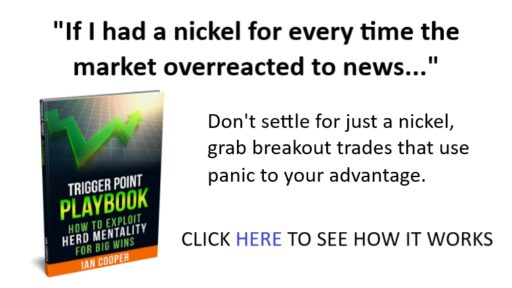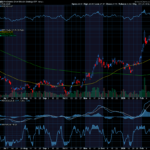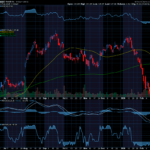by Joe Duffy
Leverage for the Buyer
Leverage is the feature attraction of futures for traders, but in some respects leverage is even greater for the purchaser of options. You can often buy an out-of-the-money option for only a few hundred dollars because you are paying for only the time value left until expiration. Your only outlay is the cost of the premium (plus brokerage commissions of course); you do not have to commit any funds to margin money nor worry about margin calls.
Then, if something happens that causes the price of the underlying instrument to surge higher (in the case of a call) or collapse (in the case of a put) beyond what the market expected, the price of the option may increase by 10 or 20 times your purchase price to produce some spectacular returns. However, this is not the type of trading strategy on which you should count on unless you have unusual insights into market events that are not known to most traders.

Even in more normal circumstances, leverage can work to your advantage as an option buyer because your risk is limited while your profit potential is unlimited. If you pay 6 for a Microsoft March 30 call option with the stock at 25 and with two months until expiration, for example, it means you are controlling $2,500 worth of stock for only $600 instead of paying at least $1,250 (at the minimum 50% margin required) for the same stock. Yes, you only control the stock for a relatively short period, but a strong increase in the price of Microsoft, or in volatility, or both during that period could be very rewarding for the amount of money you had to commit.
Leverage for the Seller
If you sell an option, you have the same risk exposure as if you were selling the underlying instrument – that is, unlimited risk – and your reward potential is limited to the amount of premium received. If you sell an option on futures, for example, you must post the same margin as a futures trader because if the option is exercised, it means that not only do you own a futures contract but you also probably hold it at a loss. Disheartening as that may sound, there are good reasons to be a seller because the exercise price often is not reached, but leverage is not one of the benefits for the options seller.
Limited Risk for the Buyer
If leverage is the primary attraction of futures, then limited risk is probably the biggest lure for the options trader, especially when you tie limited risk to unlimited profit potential. When you as a buyer pay a premium for an option, you don’t know how much your gain could be but you do know the extent of your maximum loss, and you do not have to worry about committing more margin money to the position, no matter what happens to the market.
Knowing the maximum amount of your loss has an additional bonus: You do not have to be scared out of a bad market position. For example, your analysis may have led you to conclude that the price of wheat is ready to decline so you sell futures. However, for whatever reason, wheat futures prices continue to rise higher and higher. Eventually, you may run out of margin money – or your banker may get tired of lending you more money if you are a hedger – and you are forced to abandon your futures position because you don’t known how much worse it could get… just before the move down that you anticipated begins.
If you had purchased a put option instead, you could have ridden out the rally, knowing that your risk was limited to your initial premium payment. Just because you can limit risk does not mean you will make money buying options, of course. If prices do not advance above (in the case of a call) or fall below (in the case of a put) the strike price, you can lose all of the premium amount you paid as the option expires worthless. In fact, one of the dangers of the limited-risk aspect of options is that some buyers will compensate for not having to put up so much margin money by using the money to buy a larger position in options than they would otherwise.
Limited Risk for the Seller
You won’t find any benefits here either. As a seller of options on futures, for example, you have the same risk as the futures trader and you must put up margin money just like the futures trader. This benefit applies only to the buyer.











Recent Comments